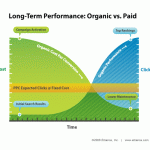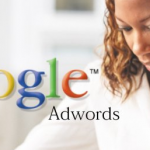Here’s a quick question for you (or whoever manages your PPC campaigns) that will help you determine if you may have a problem:
Would you rather pay…
A. $1,000 for 10 leads?
or
B. $1,000 for 100 leads
If you answered this question with either ‘A’ or ‘B,’ it’s important that you continue reading.
If you answered with “it depends” then, “it depends” whether you should keep reading.
“Poor PPC managers” would likely answer B. $10 cost-per-lead, wahoo! Unfortunately, if you answered either A or B, you’re wrong (kind of). Of course, either A or B must be the correct answer but, given the question, there is simply not enough information to know which is correct.
Be an expert PPC manager (or find one). Expert PPC managers know when to ask the right, and often times difficult, questions. They ask questions that don’t have answers that can be found in the Adwords interface and potentially, questions that you as a business don’t even know the answers to.
The correct follow-up to the question posed above is:
“That depends. Can you tell me how many of those leads from A and B turned into paying customers and how much each of those customers is worth to your business?”
Here are 2 scenarios that show why this data is absolutely vital.
Scenario #1
| Option | Leads | Cost | Sales | Revenue | Profit |
|---|---|---|---|---|---|
| A | 10 | $1,000 | 3 | $8,000 | $7,000 |
| B | 100 | $1,000 | 1 | $750 | $(250) |
Once the correct question is asked and the required data is acquired and assessed, it is obvious that as a business, you would rather pay for ‘A’: 10 leads at a cost of $1,000 dollars.
Scenario #2
| Option | Leads | Cost | Sales | Revenue | Profit |
|---|---|---|---|---|---|
| A | 10 | $1,000 | 3 | $8,000 | $7,000 |
| B | 100 | $1,000 | 10 | $25,000 | $24,000 |
In scenario #2, the numbers have changed and you see a very different result. Here it is clear that option ‘B’ is the best answer, not because the leads were cheaper, but because it generated the most profit for your business.
The Why
The goal of the follow-up question is to close the data gap and determine the close rate and revenue of both option ‘A’ and ‘B.’ Without that knowledge, it is not possible to be anything other than a “partial PPC manager” as you only know half the story.
Many industries like education, automobile, and real estate are flooded with companies that sell leads. Often times, businesses forget that value doesn’t end with lead cost. Just because you can buy a lead for $5 doesn’t mean that it is better than a lead you can generate on your site for $50. Too often, businesses pay $1,000′s-per-month for extremely cheap leads only to find out that none of those leads turn into customers. They are all junk.
On the flip side, I have also seen leads from lead generation companies be extremely cost effective. If it wasn’t for analysis at this depth however, the business wouldn’t have known that they should be spending $1,000′s more on those leads instead of spending marketing dollars in other, less effective marketing channels.
The How
Getting data this granular and having the ability to attribute it to specific marketing campaigns is no easy feat. Every situation is unique and requires an in-depth analysis and customized solution.
Closing the data gap will allow your business to make drastically better marketing decisions and leave you feeling confident about your marketing budget’s allocation.
Conclusion
For the example above, we have assumed that options A and B are PPC campaigns, but they don’t have to be. All of your marketing channels can and should be analyzed with this depth. PPC, SEO, Email, Radio, TV, Print. Don’t just be an expert PPC manager, be an expert marketer.
Until lead volume is a line item on your businesses P & L, your analysis shouldn’t end with cost-per-lead. Leads don’t provide revenue. Customers provide revenue. I challenge you to take the leap and start optimizing your marketing campaigns not for maximum lead volume or minimum cost-per-lead, but for maximum profit.
Let us help you get more traffic, more leads and more business – find out how now!
Thanks to Vertical Measures!







No Comments on this Post.Be the first